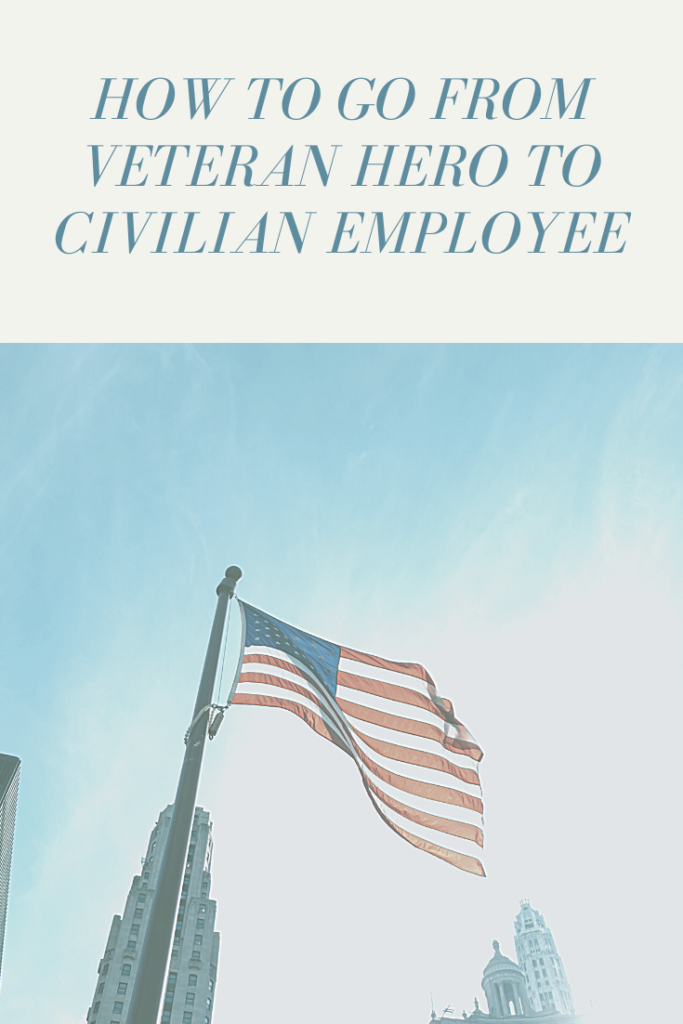|
|
When I first started out in career coaching, I worked as the director of a career center at a college located next to the largest military installation in the world. Many of our students were U.S. veteran men and women making the transition from the military to a civilian job. I salute them for their service in celebration of Veterans Day today!
But making the transition from the military to a civilian career path was not easy for most of them. I had to help several of them understand how their military skills transferred to civilian work. I also helped them re-word their résumés to use more civilian-friendly terminology, and make them more marketable to potential employers.
It was an honor to work with such fine men and women, and to help them use their skills to serve their communities in new and different ways.
Jamie’s story
There are numerous companies who want to hire veterans. But just being wanted doesn’t guarantee you a job. And listing your military service on your resume doesn’t even guarantee you an interview. You still have to know and understand the do’s and don’ts of the job search.
For example, I once had a client named Jamie who came to me because, for two and a half years since leaving the military, she had not had any luck in her job search. Despite being a veteran and applying with companies known for hiring veterans, she couldn’t even land an interview.
Jamie was in her late 20s to early 30s, had proudly served her country, and was honorably discharged. In the two and a half years since she’d left the military, she’d started her own animal rescue non-profit, and earned an MBA while also conducting her job search. She had mad skills!
When she first came to me she said,
“Obviously I’m doing something wrong, but I haven’t been able to figure out what it is. Maybe you can show me.”
She knew there was something she was missing. She just didn’t know what it was. After all this time she finally recognized her need for someone to point out her blind spots and show her the way.
A veteran transitions into a civilian employee
When I began working with Jamie, it quickly became apparent to me she needed to make some small tweaks on her resume and learn some new interview skills.
There were some things she’d included on her resume she thought were assets. However, hiring managers instead viewed them as liabilities. I had her remove those from her resume immediately.
Just a couple days later, Jamie got a call for an interview. I spent a few sessions preparing her for the interview. I taught her the interview skills she lacked, and did mock interviews with her while providing feedback on how to improve.
Jamie said:
“I had no idea until now what I’ve been doing wrong all this time!”
“By the way, you gave a really good interview. I have a family member who has a job interview coming up. Do you think you could help her prepare for it?”
How to make the transition from veteran to civilian employee
If you’re a veteran making the transition into civilian employment, here are some tips to help you better market your past experience for civilian opportunities.
1. Get help
First, if the trauma from your military experience has resulted in PTSD, or any other problems that could negatively affect your future work performance, get help! Take advantage of any and all resources offered by the military and the VA.
If these problems are not addressed early and appropriately, it could lead to poor work performance. And if you get fired from your first civilian job, it will be even more difficult to find your next job.
2. Build a civilian network
Next, build a civilian network by starting with the people you already know, including fellow veterans and active service men and women. They have civilian friends and family who probably know someone to connect you with.
Then, take time to learn new networking etiquette tips and networking skills. You can do this through my e-book, Secrets to Networking With Ease (available on Amazon), and also through my on-demand program, The Secret to Successful Networking: How to Do It Naturally and Effectively. If you need more in depth assistance, I offer military discounts on my one-on-one coaching services to those transitioning out of active duty.
3. Assess your skills
Take some time to list out all the skills you used in your military service. Then, go back and determine which of those skills could transfer to civilian opportunities. It’s helpful to look at the skill requirements in different job ads to better understand how your skills might transfer.
Then, re-word those skills on your resume using some of the same terminology used in the ads. You can also look at LinkedIn profiles of other former military personnel to see how they’ve worded their job descriptions. Choosing a one-on-one coaching package can also provide you with personalized assistance in assessing your skills and marketing them to potential employers.
4. Tell your stories
In just about every job interview, you’re going to have to answer behavioral interview questions that begin with, “Tell me about a time when…”
It may be difficult to relive some of your experiences from your military service. But, your stories are what make you marketable and unique. You must be able to tell your stories in a way that exhibits the skills you’ve developed while dealing with challenging situations.
To learn the right way to answer behavioral interview questions, see my post entitled, “The Secret to Answering Behavioral Interview Questions.”
From Deployment to Employment
I’d like to thank all U.S. veterans for their service! I hope you find these suggestions helpful as you make the transition into civilian employment. For additional resources, please check out the info graph below.







